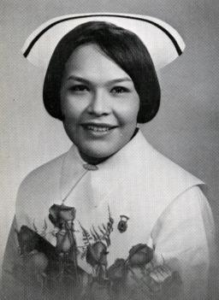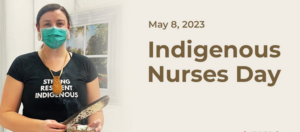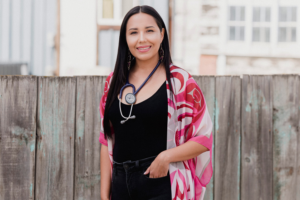Famous Indigenous Nurses You should Know About
 It wasn’t until the early 1900s that efforts were made to recognize the heritage and culture of Indigenous people in North America.
It wasn’t until the early 1900s that efforts were made to recognize the heritage and culture of Indigenous people in North America.
Indigenous health and healing practices predate Western healthcare by hundreds of years, but much of this knowledge was nearly lost through colonialism, boarding schools, and forced assimilation.
Indigenous nurses, Indigenous healthcare, and culturally sensitive healthcare have become central to overcoming healthcare disparities that continue to affect Indigenous communities.
These contributions are not just historical but continue today, with Indigenous health practices shaping modern healthcare and Indigenous health leaders pushing for more inclusive, culturally competent care.
Indigenous nurse practitioners and Indigenous nurses in North America are making a significant difference by combining traditional healing with advanced medical knowledge, breaking down barriers to access, and advocating for their communities.
Innovative Healing Practices of Indigenous People
Before Western medicine became widespread, Indigenous communities had sophisticated methods of healthcare. For example, some Indigenous tribes in North America used sharpened hollow bird bones as syringes and developed surgical techniques with sterile conditions to remove fluid from the chest cavity. Native healers utilized anesthetics for pain relief and managed surgical procedures with impressive knowledge of herbs and medicinal plants. They identified over 2,000 plant species that could treat illness, combat infection, and even prevent pregnancy.

Struggling to meet your deadline?
Get your assignment on Famous Indigenous Nurses You should Know About done by certified MDs and PhDs in the USA. ORDER NOW!
In addition to these medical practices, Indigenous health practices also included public health measures such as isolating patients with contagious diseases and using communal methods for sanitation. These practices highlight the deeply rooted knowledge Indigenous people have about health and wellness, predating Western medicine by hundreds of years.
Unfortunately, colonialism nearly wiped out these healing methods. Indigenous people, their cultures, and traditions were suppressed in favor of assimilation policies. For example, Florence Nightingale, often credited as the founder of modern nursing, supported the colonial assimilation of Indigenous people in Canada through forced attendance at boarding schools—schools that subjected children to harmful, abusive environments. Similarly, in the U.S., Indigenous people were victims of medical experimentation and forced sterilizations of women, which has had lasting impacts on the health of Indigenous populations.
It wasn’t until the late 20th century that action was taken to dismantle systems of oppression, marking a turning point for Indigenous health leadership. Despite these obstacles, many Indigenous individuals emerged as prominent figures in nursing history, demonstrating resilience and commitment to their communities.
Influential Indigenous Nurses Worth Knowing
The contributions of Indigenous nurses are often overlooked, but they have played a significant role in improving health outcomes for their communities and advancing culturally sensitive healthcare. These nurses are leaders in the field, bridging the gap between traditional Indigenous health practices and modern medical care.
Rachel Radyk
Rachel Radyk, a registered nurse with Chippewa heritage, is an advocate for Indigenous healthcare and culturally competent care. After completing her nursing studies, Radyk became involved in several healthcare initiatives, including working as a COVID-19 navigator for the Indigenous community in Ontario. She has received several accolades, including being named Nurse of the Month by the Canadian Indigenous Nurses Association in 2020 and receiving the Innov8 Award for Nursing Entrepreneurship in 2021. Radyk’s work highlights the importance of Indigenous nursing programs and their role in advancing Indigenous health initiatives in modern healthcare.
Misty Wilkie
Misty Wilkie, Ph.D., a member of the Turtle Mountain Band of Chippewa, has become a trailblazer in nursing education and Indigenous nurse leadership. She became the 14th Indigenous person in North America to earn a Ph.D. in nursing and later established a culturally supportive organization, Niganawenimaanaanig, to support Indigenous nursing students. Wilkie’s efforts focus on improving diversity and inclusion within the healthcare system and advocating for Indigenous nurse education programs. Her research and leadership continue to inspire Indigenous healthcare initiatives across the U.S. and Canada.
Michelle Kahn-John
Michelle Kahn-John, from the Navajo Nation, integrates Indigenous perspectives into her nursing practice. She mentors numerous nursing students and works with the University of Arizona College of Nursing. Kahn-John’s focus on mental health, particularly on reducing the rates of depression and suicide in her community, underscores the importance of culturally tailored healthcare. Her work serves as an example of how Indigenous nurse practitioners can bring Indigenous health perspectives into the healthcare field and make meaningful changes.
Virginia Sneed Dixon
Virginia Rosebud Sneed Dixon, a member of the Eastern Band of Cherokee Indians, was the first Cherokee nurse to serve overseas. She worked in World War II and later advocated for her community’s health needs. Dixon’s story is a testament to the history of Indigenous nurses who overcame barriers to serve their communities and excelled in nursing leadership roles.
Marcella LeBeau
Marcella LeBeau, from the Cheyenne River Sioux Tribe, served as an Army nurse during World War II and later worked with the Indian Health Service for 31 years. She played a critical role in raising awareness about the dangers of smoking, which led to the creation of the first smoke-free community on a South Dakota reservation. LeBeau’s lifelong dedication to Indigenous health leadership continues to inspire nurses in North America.
The Role of the Indian Health Service in Promoting Indigenous Nursing Careers
The Indian Health Service nursing program has been essential in promoting Indigenous nursing careers by providing scholarships, training, and career opportunities for Indigenous nursing students. The IHS focuses on expanding the presence of Indigenous nurses in the healthcare system, recognizing that a diverse and culturally competent workforce can lead to better health outcomes in Indigenous communities.
This initiative also supports a range of career paths within Indigenous healthcare, including nurse midwives, nurse anesthetists, and nurse practitioners. Research shows that when Indigenous nurses care for Indigenous patients, the outcomes are more positive because these nurses understand the cultural context and the healthcare disparities facing their communities. Nursing research has also shown that Indigenous-led healthcare models that integrate Indigenous health practices can significantly improve patient care.
Challenges and Triumphs: Overcoming Healthcare Disparities in Indigenous Communities
Indigenous communities face some of the highest rates of chronic diseases and healthcare disparities in North America. Factors such as geographical isolation, historical trauma, and systemic neglect of Indigenous health contribute to these challenges. However, Indigenous nurses are working tirelessly to address these issues. Through their roles in nursing education, nursing research, and direct care, these nurses are combating disparities and working toward a more equitable healthcare system.
Nursing essays, nursing assignments, and online nursing papers are increasingly focusing on the importance of culturally competent nursing care in overcoming these disparities. As more research is conducted, the need for culturally sensitive healthcare continues to grow. The inclusion of Indigenous perspectives in nursing education and practice is a crucial step in addressing these long-standing issues.
Indigenous Nursing Programs and Scholarships
To address the lack of representation in the healthcare workforce, Indigenous nursing programs play a critical role in educating the next generation of Indigenous nurses. These programs provide scholarships and financial support, ensuring that Indigenous students have the opportunity to pursue degrees in nursing.
The Indian Health Service’s American Indians Into Nursing program, for example, provides valuable resources for nursing scholarships for Indigenous students. These programs help alleviate financial barriers and encourage nursing diversity and inclusion. As more Indigenous nurses enter the field, they will be poised to lead efforts to improve Indigenous healthcare and address healthcare disparities in their communities.
The Future of Indigenous Nurses in Healthcare
The future of Indigenous nurses in healthcare is bright. With the continued growth of Indigenous nursing programs, nursing scholarships for Indigenous students, and Indigenous health initiatives, the next generation of nurses will bring critical cultural perspectives to healthcare practice. These nurses will be instrumental in improving nursing diversity and advancing culturally competent care.
As more Indigenous nurse practitioners and other Indigenous healthcare leaders emerge, they will continue to advocate for healthcare policies that better reflect the needs of Indigenous peoples. Their leadership will help create a healthcare system that is not only more inclusive but also more effective in serving Indigenous communities.
Recognizing the Contributions of Indigenous Nurses in Healthcare History
The history of Indigenous nurses is rich with stories of resilience, leadership, and dedication. From early pioneers like Susie Walking Bear Yellowtail, the first registered nurse from the Crow Nation, to modern leaders like Margaret Moss, who advocates for culturally sensitive healthcare, these nurses have played a crucial role in shaping the healthcare system as we know it.
Through Indigenous health leadership, Indigenous nurse education, and continued advocacy, these nurses have left an indelible mark on healthcare history. Their legacy serves as a reminder that Indigenous voices and perspectives are critical to the future of healthcare.
Indigenous Nursing Leadership and Advocacy in the Healthcare System
Indigenous nurses are not only important healthcare providers but also leaders and advocates who push for systemic change. Nursing research and nursing papers increasingly focus on the contributions of Indigenous nurses to the healthcare system. Through leadership roles and advocacy, Indigenous nurses are advancing culturally competent nursing care and pushing for the inclusion of Indigenous health practices in healthcare policies.
The continued support of Indigenous nursing education, nursing scholarships, and nursing assignments that focus on Indigenous health issues will ensure that Indigenous nurses continue to be at the forefront of healthcare reform.
Conclusion
The contributions of Indigenous nurses are fundamental to reshaping the healthcare system. Through Indigenous nursing programs, nursing leadership, and culturally sensitive healthcare practices, these nurses are playing a pivotal role in improving healthcare outcomes for Indigenous communities. As the Indigenous nursing profession continues to grow, it will create a more inclusive, equitable healthcare system for all.

Dont wait until the last minute.
Provide your requirements and let our native nursing writers deliver your assignments ASAP.

